- Home
- Elizabeth Goudge
My God and My All Page 28
My God and My All Read online
Page 28
He was too weak for the steep climb up Alvernia, but the brothers borrowed a donkey for him to ride upon from a peasant. “Tell me, art thou Brother Francis of Assisi?” asked the peasant, and when Francis answered, “Yes,” he said, “Take heed, then, that thou be in truth as good as all men account thee; for many have great faith in thee, and therefore I admonish thee to be no other than what the people take thee for.” This was the kind of remark that appealed irresistibly both to Francis’s humility and to his sense of humor. He was so delighted with it that though he had just got on the donkey he got off it again that he might kneel on the ground and kiss the peasant’s feet.
When they had climbed some way and had come through the woods of the lower slopes, where in their season the wild cyclamens carpet the ground, and emerged onto the rocks above, they stopped to rest, and Francis sat under a tree with the great view spread out before him. Far down below were the villages built on the little hills among their vines and olives, the Arno twinkling through the plain, the great mountains in the distance blue and cloudlike in the heat. Within their ravines and valleys were so many places that he had loved throughout his life, paths along which he had walked, castled villages where he had preached and healed. He sat lost in memory, considering the great view. The silence, the quietness of the heights, was profound. Then, says The Little Flowers of Saint Francis, “while he was thus considering, behold there came a great multitude of birds from divers regions, which, by singing and clapping their wings, testified great joy and gladness, and surrounded Saint Francis in such wise, that some perched upon his shoulders, some on his arms, some on his bosom, and others at his feet, which when his companions and the peasant saw, they marveled greatly; but Saint Francis, being joyful at heart, said to them: ‘I believe, dearest brethren, that our Lord Jesus Christ is pleased that we should dwell on this solitary mount, inasmuch as our little brothers and sisters, the birds, show such joy at our coming.’ And having said these words, he arose and proceeded to the place which had been fixed upon by his companions; and so did Saint Francis come to the holy mount of Alvernia.”
Far up above the rocks, where there were trees again, pines and great beeches, the Lord Orlando had built huts of clay and interwoven branches for the brothers, and a chapel which was called after Santa Maria degli Angeli. When he heard that Francis had come to Alvernia he was filled with joy, and the next day he and his servants came carrying food for the brethren, and he told them to send to him at his castle if there was anything they wanted. When he had gone Francis was distressed about this, for he feared that to have such care taken of them was not holy poverty. But the brothers must have felt it a weight off their minds.
Then the eight men entered into the quietness of that threshold of heaven that is always there for us, like an old church porch in a street where the traffic thunders by, if only we can manage to forget ourselves and our busyness for long enough to become conscious of it, to get out of the traffic and go in. These men had learned how to do that, and according to their capacity they went in, some deeper than others, Francis deepest of all. He chose a hut a little apart from the others, under a beech tree, and asked that only Leo should come to him, to minister to him as a priest and to bring him bread and water. He asked the rest to help him with their prayers, for he knew that God had some purpose for him in this place, some work to be wrought in him and through him, and he wanted to be lifted up into that state of readiness which is the work of prayer. For days and nights he prayed that he might be conformed to the will of God, the prayer of his whole life that he had prayed in San Damiano. “Be found of me, Lord, so that in all things I may act in accordance with thy holy will.” And then one day he went out of his cell and stood under the beech tree, and he began to have some premonition of what that will might be. The air was the pure cold air of the heights, the stillness absolute, before him was that great view and at his feet the precipice of rocks fell sheer away, rent into great chasms. The beauty and splendor of nature always lifted him up to God. With the rock of Alvernia strong beneath his feet he thought of Christ the Rock, his strength and stay, rent by the sin of man. The mountain was speaking to him of the passion of Christ. He was caught up into prayer and he became convinced that the fissures in the rock had been torn at the moment when Christ died. Alvernia had shared the passion of Christ.
From that moment he became more withdrawn into prayer, and Leo, coming to minister to him, was aware of the withdrawal, and felt a sorrow akin to the sorrow of death. He had given Francis the whole of a son’s devoted love, and his father was being lifted away from him to some place where he was not able to follow. He prayed that God would have mercy upon him and in spite of his unworthiness give him a share in Francis’s grace.
The conviction that to meet what was coming he must get away from men, even from Leo, was driving Francis all the time into a deeper loneliness. In the hut under the beech tree they could hear him if he called. He felt he would be more entirely in the hands of God if he was beyond the help of man. One day, as the Feast of the Assumption drew near, he asked Leo to stand at the door of the chapel, while he himself went deeper into the wood. Every now and then he called, and Leo answered, and when he reached a spot where Leo and he could no longer hear each other he knew that somewhere here was where he must be. He chose a ledge of rock that was divided from the way he had come by a deep chasm. An experience was coming to him that would set him apart from other men, set a chasm between him and them, and his deep unconscious sense of drama and symbolism was even now at work. The brothers made a little cell of interwoven branches on the rock, and bridged the chasm with a branch of a tree, and listened trembling to their instructions. Francis was a sick man and they must have been afraid for him. “Return now to your place,” he said, “and leave me here alone; for, by the help of God, I intend to pass this Lent here, without any disturbance or perturbation of mind; therefore let none of you come unto me, nor suffer any secular person to come near the cell. But thou only, Brother Leo, once a day shalt come to me with a little bread and water, and once a night at the hour of matins, and thou shalt come in silence; and when thou art upon the bridge, thou shalt say, Domine labia mea aperies; and if I answer thee, thou shalt come to the cell, and we will say matins together; and if I do not answer thee, thou shalt depart forthwith.” On the Feast of the Assumption he gave them his blessing and went away from them across the little bridge.
Mystics are explorers and all that now happened beyond that bridge happened in a far country. Francis tried to speak of the country in a few broken words to Leo when he came to minister to him, and in more detail to the seven brothers when he had come back to them again, but the words that are the currency of our everyday life in the body do not serve for the vision of God in the life of the spirit, and it can seem to the saints almost a desecration to use them to describe what they have seen. Angela of Foligno, one of the daughters of Saint Francis in the Third Order, said, “All that I say of this seemeth unto me to be nothing, I even feel as though I offended in speaking of it; for so greatly doth that Good exceed all my words that my speech doth appear to blaspheme against it.”
Francis in his oratory on the rock gave himself courageously to that purgatory which in any world must precede the soul’s union with God. Feeling the approach of a love terrible in its power and purity, he was racked with that deep and searching sense of sin that pierced Peter when he cried, “Depart from me; for I am a sinful man, O Lord,” and through these days and nights his suffering reached a point that he could hardly bear. “If the friars knew,” he whispered to Leo, “there is not one of them who would not be moved to compassion and pity.” But he was not left without help. Every midnight, in the great darkness of the world and of his soul, he heard the voice of Leo crying out the opening words of matins, “Domine labia mea aperies,” and then his son would cross the bridge and they would kneel in prayer together and he would be comforted. One day, exhausted and wretched, he prayed that God would grant him some foretaste
of the joy of heaven to help him bear the load of sin. Then it seemed to him that an angel was close to him, strengthening him. The great spirit had a viol in his left hand and a bow in his right, and just once he lifted the bow and drew it across the strings. Francis told his sons afterward that had the music continued his soul would have left his body, for the joy of it could not be borne.
A falcon made herself his close companion. She had a nest close to his cell. In the daytime she would keep close to him to comfort him, and at night she made herself his clock, crying and flapping her wings when the hour for matins drew near. If she saw him more than usually sick and weary she would let him rest a little longer, but always she had him alert and ready for Leo. Francis took great delight in his falcon. The man, the angel, and the bird brought him strength from God.
2
THE DAYS DREW ON to the Feast of the Holy Cross, September the 14th, kept holy by all Christians in remembrance of the day when the true cross had been won back from the Persian conqueror who had taken it away from Jerusalem. It was a day especially sacred for Francis because of what the cross meant to him, and because it was the patronal festival of the crusaders. The day had for him now a personal sadness. He had with longing offered himself to die a martyr’s death upon the crusade, that he might have some share in the suffering and death of his Lord, and at that time his offering had not been accepted.
One night during these days Leo came to the bridge and called aloud, “Domine labia mea aperies,” but for the first time there was no answer. He had been forbidden to cross the bridge if Francis did not answer him, but he was so afraid that his father might be now seriously ill that he disobeyed him and crossed the bridge. The cell was empty, but he went farther on into the wood beyond, for the moon was bright and he could see the way. Then he heard Francis speaking and coming nearer he saw him kneeling in prayer and heard the words that he said. “Who art thou, my dearest Lord? And who am I, a most vile worm and thy most unprofitable servant?” That was all his prayer, and he spoke the same words over and over again. Then it seemed to Leo that a light came from heaven and rested upon Francis, and though he himself could hear no words he believed that they were spoken, and three times over he saw Francis take his hands from his breast and stretch them up to the light. Then the splendor was withdrawn, and in joy, knowing that all was well with Francis, Leo turned, hoping to creep away unseen. But the fallen beech leaves rustled under his feet and Francis looked around and saw him and commanded him to stay where he was. Leo stood still and he trembled, for he had disobeyed and he was afraid Francis would be angry with him.
Francis came toward Leo but his eyes were now so dim that though the wood was bright with moonlight he did not know who it was who stood there, and he said, “Who art thou?” Leo said, “Father, I am Brother Leo,” and kneeling at Francis’s feet he asked for forgiveness. Francis knew the anxious love that had prompted the disobedience and he was not angry, but gentle and tender, and when he knew that Leo had heard his words, and seen the light and the lifting of his hands, he tried to tell him of what he had experienced in prayer. He said he had been kneeling in contemplation and he had beheld, as he was able to endure it, the goodness of God, and then he had seen the fearful abyss of his own vileness and out of the deep he had cried out, “Who art thou, my dearest Lord? And who am I?” And then the voice that had spoken to him so often spoke again from out of the light that rested upon him, asking him for three gifts, and he was distressed because he had nothing to give. He possessed nothing except his cord and tunic, and even they had been given him by God. Then the voice said, “Search in thy bosom,” and putting his hands to his breast he found a golden ball there, and a second and a third, and he lifted them up to God, thanking him that of his mercy he had given his servant something that he might offer. At first he did not understand what he was offering, and then he realized that the three golden balls were poverty, chastity, and obedience. And he knew too that though God had come very close to him he would come nearer still, and that it would be soon.
After they had talked together Francis and Leo went to the little oratory and Francis knelt before the altar and prayed that he might know something of the will of God concerning him, so that he might be able to conform himself the more perfectly to that blessed will. Then he signed himself with the sign of the cross, and turning to Leo he asked him to open the book of the Gospels and read to him the first passage upon which his eyes fell. Leo took the book and opened it, bending in the dim candlelight to see the page, and Francis kneeling before the altar heard him read of the crucifixion of his Lord. Twice more Leo opened the book and twice more it opened at the story of the passion. Then Francis knew that his offering had been accepted. He was to share the suffering of Christ.
On the morning of the Feast of the Holy Cross, just before dawn, he was kneeling at the entrance to his cell, his face toward the east where soon now the light would break. Near to him was a rock which must many times have reminded him of the rock of the agony beside which he had prayed in the Garden of Gethsemane. He was praying now and the words of his prayer were these: “O Lord Jesus Christ, two graces do I ask of thee before I die; the first, that in my lifetime I may feel, as far as possible, both in my soul and body, that pain which thou, sweet Lord, didst endure in the hour of thy most bitter passion; the second, that I may feel in my heart as much as possible of that excess of love by which thou, O Son of God, was inflamed to suffer so cruel a passion for us sinners.” He continued for a long time in this prayer and passed from it to deep contemplation, wherein the eyes of his soul beheld the passion of Christ and his infinite love. Perhaps the eyes of his body, closed in prayer, were yet aware of the glory of the dawn, and his ears of the singing of the birds in the woods below him, as the light grew. He looked up and saw the sky filled with fiery and resplendent wings and in the midst of the glory a figure. Two wings were spread above the head, two were outstretched in flight and two covered the body. It seemed to Francis that the seraph was coming from heaven to earth, drawing near with rapid flight, and he was much afraid. Then the fear changed to joy and grief and wonder, for he saw that the seraph came to him as one crucified, with arms outstretched and feet conjoined. This was his Lord, looking upon him with gracious aspect and immortal love, so near to him now that he could see the infinite beauty of the suffering face, so near at last that the pierced feet rested upon the rock. Then it seemed to him that the seraph smote him in body and soul, so that he was in great agony and yet in great joy, and afterwards was so close to him that they spoke together. This moment of union seemed to Francis to lift him out of time into eternity.
Then he was alone, yet not alone, for the burning love in his heart was the same love that had come from the height of heaven down to the depth of man’s need, his joy was Christ’s joy in redemption and his pain Christ’s pain. Every prayer of his life had been answered. He had fulfilled the will of God as perfectly as a man may, his offering of himself had been accepted and he was wholly Christ’s. In token thereof the seal of the cross that had been set upon his immortal soul years ago was now upon his mortal body also. He bore in hands and feet and side the wounds of Christ.
3
THE RETURN WAS to this world, beautiful in the sunrise with the golden light gilding the woods and the mountains, and the birds singing, but still this world. Yet Francis afterward did not say that he had felt grief that his soul had not been allowed to escape from his body, sorrow at the realization that Alvernia had been his Mount Carmel but not his Calvary, and that he must live on in this world a little longer. For he had never drawn back from anything God asked of him and he was not changed at all, only more deeply in love with the will of God than he had ever been, more full of zeal to serve him. He left his cell and went back to the brothers. His own wish was to keep what had happened a secret between himself and his Lord, and then he wondered if God was sending him back into human life to share his joy with his sons that they might be strengthened and purged by it. As always, he
did not trust his own judgment, and calling the brothers together asked them if they thought the favors of God should be revealed or hidden. Illuminato, looking at his transfigured face, at his hands hidden in the sleeves of his habit and the folds of the habit covering his feet, knew he had been near to heaven, and replied, “Brother, thou knowest that not for thyself alone are the heavenly secrets revealed to thee, but for others also.” Then Francis set aside his own wish and told them of the vision, and he told them that his Lord had told him certain things that he might never make known as long as he lived. He told them of the stigmata but only to Leo did he show his wounds, and only to him because he wanted his help, for they gave him pain and he needed Leo to bandage them for him. Only after he died did any beyond the faithful few have full knowledge of what had happened to him.
For Francis, not in spite of the pain but because of it, these days brought a renewal of his youth. It was like the rebirth of the first days of his conversion, only more glorious. That had been the start of the stony uphill journey and he had set forth singing, so glorious had it been to set his feet in the footsteps of Christ. But now he had attained to the summit and the master he had followed had turned and, even in this world, looked upon him. He lived now in the light of that regard and because the pain he suffered was God’s own redemptive pain it was a part of the light and could not dim his joy. Other saints who have come through the darkness to this light of union have felt that in spite of the difficulty they must try to tell us of it in their books and verse, because they know what hope it gives to sinners to have their pledge that the place of union is not something that exists only in our aching longing, but is in truth the end of our journey, even if it is an end that for most of us will be reached only at some point still far beyond the point of physical death. Francis, though he was a singer, was not a writer and he was not able to write about what had happened to him, nor did he need to because it was written upon his body. That was fitting, for he had always made “a tongue of his whole body.” But yet he felt that he must try and express in some way the praise and adoration that filled his whole being. That fount of joy that had been sealed in by sorrow was free again now as when after long drought the wells have broken.

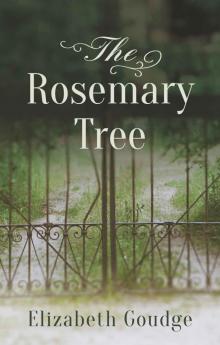 The Rosemary Tree
The Rosemary Tree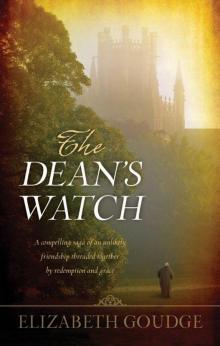 The Dean's Watch
The Dean's Watch Linnets and Valerians
Linnets and Valerians Gentian Hill
Gentian Hill B00DRI1ZYC EBOK
B00DRI1ZYC EBOK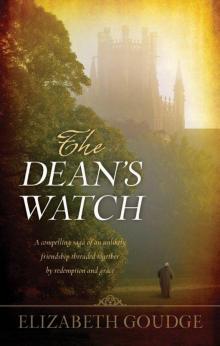 B008O6ZWTG EBOK
B008O6ZWTG EBOK The Scent of Water
The Scent of Water Pilgtim's Inn
Pilgtim's Inn Island Magic
Island Magic Pilgrim's Inn
Pilgrim's Inn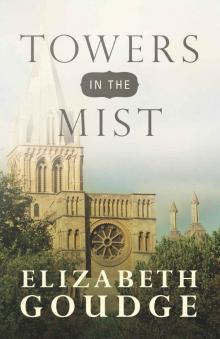 Towers in the Mist
Towers in the Mist Green Dolphin Street
Green Dolphin Street The Bird in the Tree
The Bird in the Tree The Child From the Sea
The Child From the Sea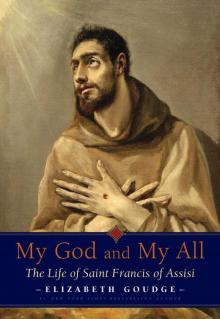 My God and My All: The Life of Saint Francis of Assisi
My God and My All: The Life of Saint Francis of Assisi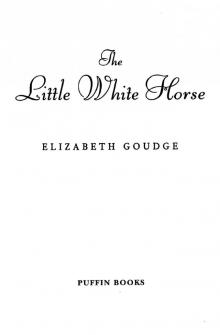 The Little White Horse
The Little White Horse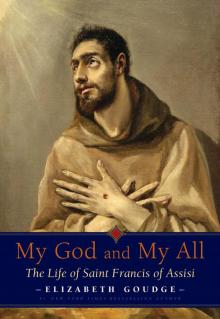 My God and My All
My God and My All B00CKXCNH8 EBOK
B00CKXCNH8 EBOK